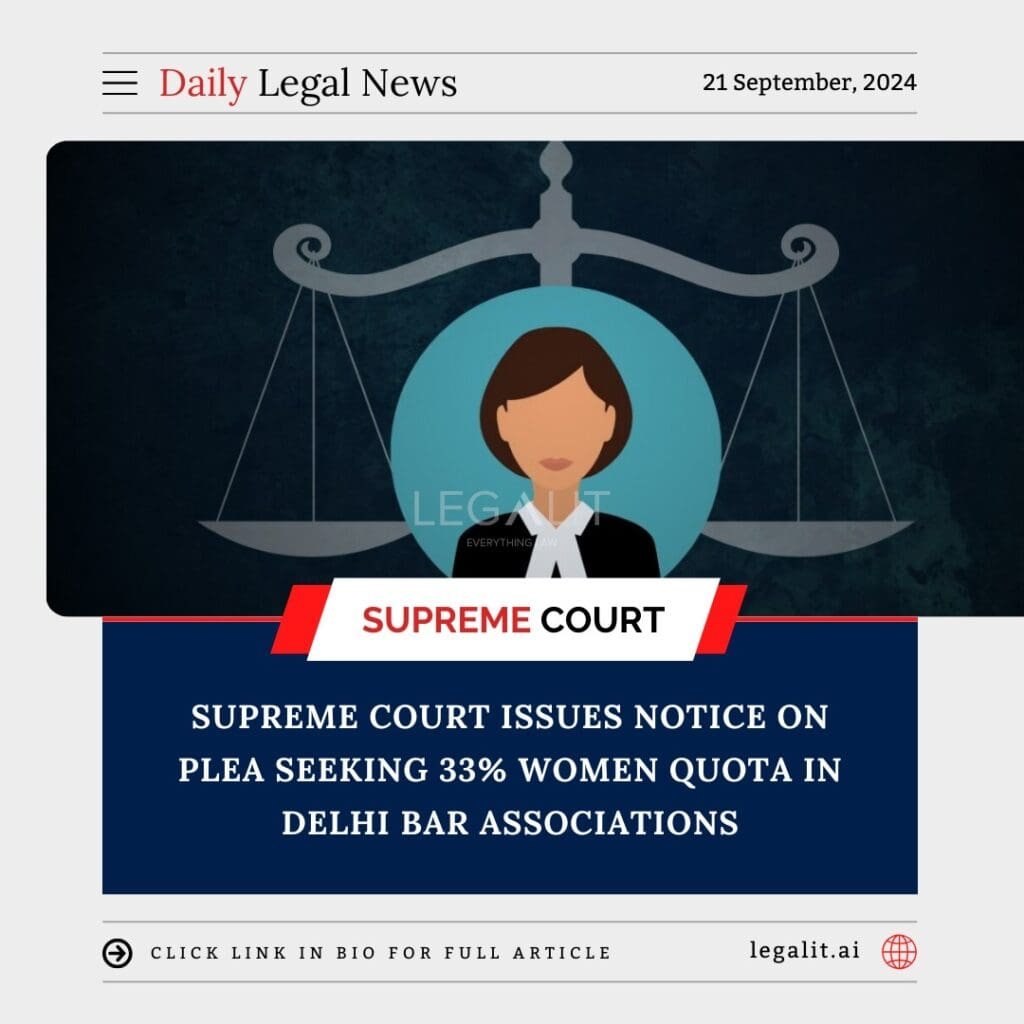
Supreme Court Issues Notice on Plea Seeking 33% Women Quota in Delhi Bar AssociationsThe Supreme Court of India has issued a notice in response to a petition advocating for a 33% reservation for women in bar associations across Delhi. This move is seen as a significant step toward enhancing gender representation in the legal profession, which has traditionally been male-dominated.
Background of the Petition
The plea emphasizes the need for equitable representation of women in legal bodies and bar associations, arguing that a reservation policy would help address systemic gender disparities in the field. Key points raised in the petition include:
Underrepresentation of Women: Despite the increasing number of women entering the legal profession, their representation in bar associations remains disproportionately low. The petition argues that this underrepresentation affects decision-making processes and the overall dynamics within the legal community.
Promoting Gender Equality: The call for a 33% reservation aligns with broader efforts to promote gender equality in all sectors of society, including law and justice. The petitioners contend that a quota system is necessary to ensure that women’s voices are adequately heard and considered in legal matters.
Legal Precedents: The petition cites various legal precedents that have established the importance of affirmative action in ensuring equal opportunities for marginalized groups. It argues that implementing a quota for women in bar associations would be a step toward rectifying historical injustices.
Supreme Court’s Response
The Supreme Court’s decision to issue a notice indicates that the court is willing to consider the merits of the petition. This initial response does not imply any judgment on the issue, but it opens the door for further legal discussions regarding gender representation in the legal profession.
Implications of the Petition
Encouraging Women in Law: If the plea is accepted, it could encourage more women to pursue careers in law, knowing that there is a supportive framework for their representation in professional bodies.
Strengthening the Legal System: Greater gender diversity within bar associations can lead to more inclusive and balanced perspectives in legal discussions and decisions, ultimately strengthening the justice system.
Setting a Precedent: A ruling in favor of the petition could set a precedent for other states and legal bodies in India, prompting similar calls for gender quotas in various professional sectors.
Ongoing Discussions on Gender Equality: This case could further invigorate discussions on gender equality within the legal profession and beyond, potentially leading to more comprehensive policies aimed at promoting women’s rights.
Conclusion
The Supreme Court’s issuance of a notice regarding the plea for a 33% women quota in Delhi bar associations marks a crucial moment in the ongoing struggle for gender equality in the legal field. As the case unfolds, it highlights the importance of ensuring that women have an equal opportunity to participate in the legal profession, which is vital for a fair and just society. The outcome could have far-reaching implications for women’s representation in law and may catalyze further reforms aimed at achieving gender parity in various professional domains.